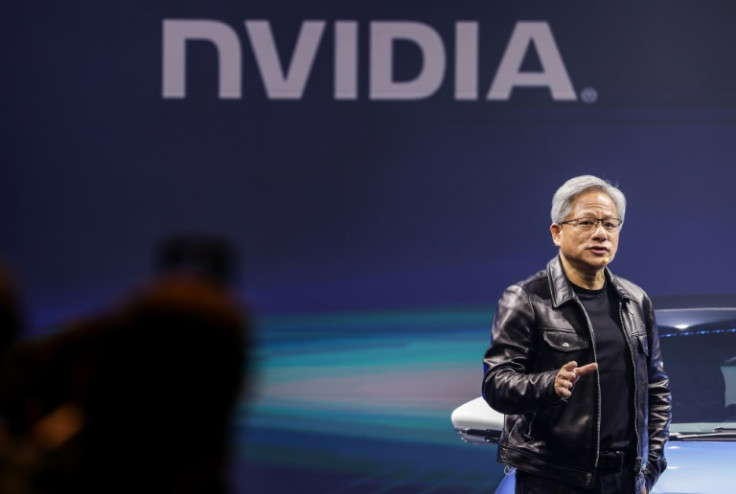Nvidia CEO Says Tech Advances Will Limit AI Costs As OpenAI Seeks $7 Trillion Investment
Silicon chips are a key component of AI expansion – President Joe Biden recently signed the CHIPS Act, which gives $52 billion to build factories in the US.

Nvidia's Chief Executive Officer (CEO) Jensen Huang says advances in computing over the next few years will limit the cost of developing artificial intelligence, in response to reports that OpenAI is seeking a $7 trillion investment.
Huang, who fronts the self-described 'world's most advanced AI platform' says "You can't assume just that you will buy more computers – you have to also assume that the computers are going to become faster and therefore the total amount that you need is not as much."
Because of its uncontested leadership in AI-training chips, Nvidia's market value has ballooned to more than $1.7 trillion and increased Huang's personal wealth several times over.
Speaking at the World Government Summit in Dubai on Monday, the 60-year-old says he's confident the chip industry will drive down the cost of AI, as those parts are made "faster and faster and faster."
Huang was responding to a report in the Wall Street Journal that OpenAI CEO Sam Altman is seeking to raise $7 trillion from investors in the Middle East, including the United Arab Emirates, for a semiconductor initiative to power AI projects that would rival Nvidia.
According to the Journal's scoop, Altman is pitching a partnership between OpenAI, various investors, chip makers and power providers, which together would put up money to build chip foundries that would then be run by existing chip makers.
OpenAI would agree to be a significant customer of the new factories.
The discussions are in their early stages, the full list of potential investors isn't known, and the effort could span years and ultimately might not succeed.
Silicon chips are a key component of AI expansion - US President Joe Biden recently signed the 'CHIPS Act', which promises $52 billion in subsidies to build factories in America.
However, Altman and other AI developers are seeking ways to diversify their hardware options, including by exploring chipmaking ventures of their own.
The world's leading contract chipmakers, Taiwan Semiconductor Manufacturing and Samsung Electronics commit more than $30 billion in capital expenditures each year to stay ahead of potential rivals.
Last month, tech mogul Elon Musk revealed that Tesla, his automotive company, which designs, manufactures and sells electric vehicles (EVs), will be spending over a whopping $500 million on Nvidia AI chips alone this year.
Despite being optimistic that AI spending will eventually slow down, the Nvidia CEO doesn't see an end to the increase anytime soon – Huang estimated that the global cost of data centres powering AI will double in the next five years.
"We're at the beginning of this new era. There's about a trillion dollars' worth of installed base of data centres. Over the course of the next four or five years, we'll have $2 trillion worth of data centres that will be powering software around the world," he added.
According to Huang, fears about the dangers of AI are "overblown", noting that other new technologies and industries such as cars and aviation have been successfully regulated.
"There are some interests to scare people about this new technology, to mystify this technology, to encourage other people to not do anything about that technology and rely on them to do it. And I think that's a mistake."
As AI continues to develop at a rapid pace, governments across the world have expressed concern about its unregulated advancement.
The world's first AI conference was hosted by UK Prime Minister Rishi Sunak in November last year.
The summit concluded with the signature of the Bletchley Declaration – the agreement of countries including the UK, United States and China on the 'need for international action to understand and collectively manage potential risks through a new joint global effort to ensure AI is developed and deployed in a safe, responsible way for the benefit of the global community'.
EU legislators confirmed this week that their 'AI Act' will be passed as a law by next year.
The European Union first finalised the world's first 'AI Law' in December, which will aim to regulate systems based on the level of risk they pose.
Negotiations on the final legal text began in June, but a fierce debate over how to regulate general-purpose AI like ChatGPT and Google's Bard chatbot threatened talks at the last minute.
The newly agreed draft of the EU's upcoming AI Act will require OpenAI, the company behind ChatGPT, and other companies to divulge key details about the process of building their products.
© Copyright IBTimes 2025. All rights reserved.






















